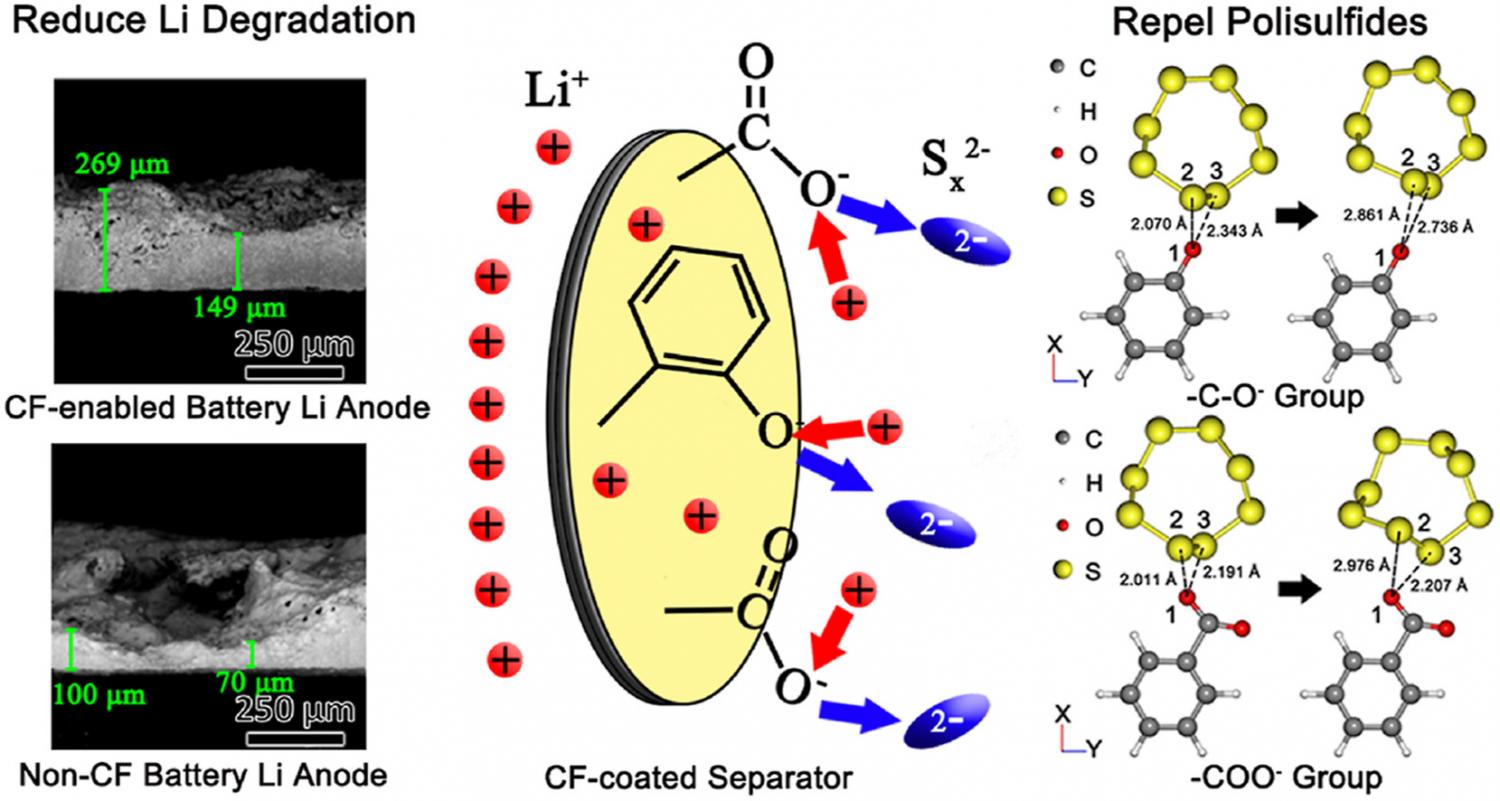
Elsevier, Materials Today Energy, Volume 19, March 2021
The fast-expanding electric vehicle market demands eco-friendly, high-performance, and low-cost energy storage systems. Lithium-sulfur battery with higher theoretical specific capacity and lower cost is regarded as a promising successor to lithium-ion battery. However, lithium-sulfur battery's polysulfide shuttling and lithium degradation have hindered its practical applications. In this study, cellulose fibers (CFs) were extracted from recycled paper hardboards by a simple alkaline treatment and then coated onto polypropylene separators by vacuum filtration. When being used as lithium-sulfur battery separators, the negatively charged functional groups on the CFs repelled polysulfide ions and redistributed lithium ions, enabling the assembled cells' superior stability and long life span. The lithium-sulfur battery with the recycle paper CF-coated separator exhibited a life span of over 800 cycles with a capacity retention rate of 71.69% and nearly no capacity decay after the initial formation cycles. The finding demonstrates that renewably produced, CF-coated polypropylene separators can simultaneously reduce the shuttle effect and degradation of lithium, paving the way toward commercially -viable and environmentally friendly lithium-sulfur batteries.
